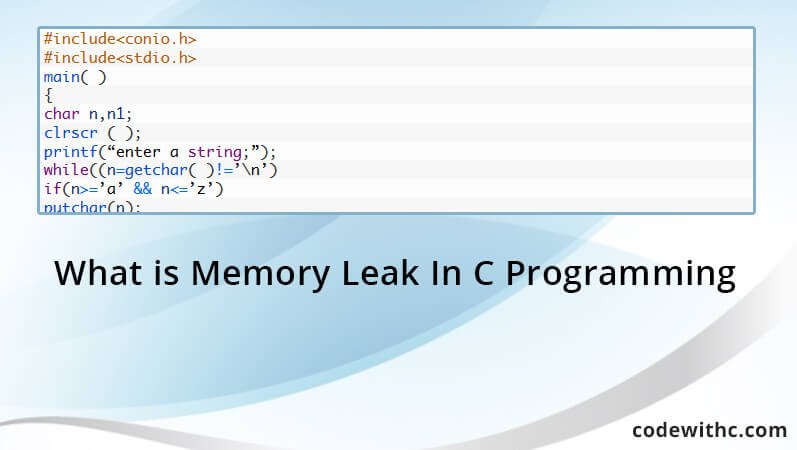A memory leak happens when a piece (or pieces) of memory that was already allotted by a programmer is not legitimately deallocated by the programmer. Despite the fact that that memory is no longer being used by the program, it is still “held”, and that bit of memory can not be utilized by the program until it is legitimately deallocated by the programmer. That is the reason it’s known as a memory leak – on the grounds that it resembles a leaky spigot in which water is being squandered, just for this situation it’s computer memory.
In frameworks, functions “malloc()” and “free()” keep up pool of accessible memory for use by procedures under element necessities. This pool of memory is a restricted asset. If a program is allotted memory from this pool and it didn’t free up the piece after it’s did not require anymore, then this prompts memory leak. This lump of memory is liberated just when program exits.
In circumstances, where dynamic distribution is no longer required to keep up, free up the piece before program ends. There’s no significance of arranging for portion toward the finish of program; since, it’d be like hold memory till program exits. This is likewise memory leak!
Memory leak is an extreme issue when a program is over and over asking for more memory uncertainly and not arranging for any. This will deplete pool of accessible memory.
Conclusion
For even the least complex structures and shades of hues, our recollections don’t record supreme data (even minutes after the fact). In all actuality, there are different explanations behind this. However, shy of getting into every one of the reasons, how about we simply investigate one situation. A craftsman is painting a protest set before him or her, endless supply of the question, the craftsman never again can precisely delineate the correct hues or insights about it any more. This situation incorporates just the expulsion of the protest being referred to.
